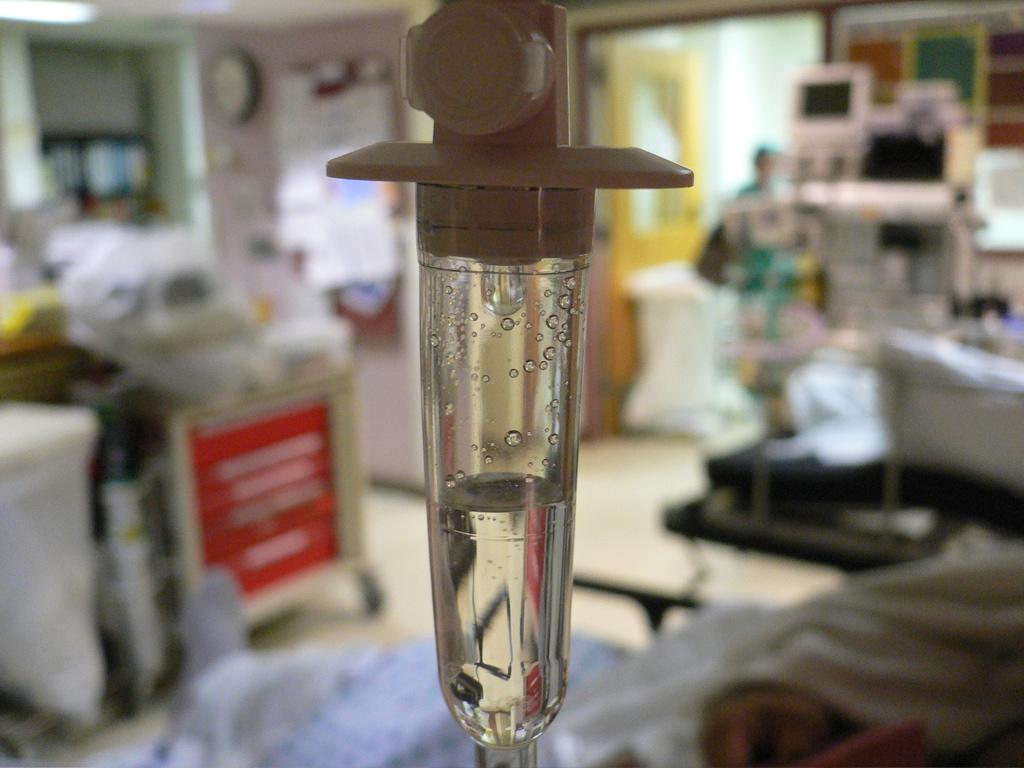It’s the frontline negative advertising campaign that’s next to impossible to beat.
Walk into a doctor’s surgery any time soon and there’s a fair chance you’ll see a message blaming the withdrawal of bulk billing services and a fat fee hike on the Abbott government’s GP co-payment sting.
Walk over the road to a Medicare office to get your diminished partial refund and there’s a good chance you’ll see or hear another message that its staff are in dispute with their employer, Human Services, over pay and conditions.
That’s the shopfront messaging which literally millions of Australians are set to see over coming weeks and months and the kind of electorally corrosive communications campaign which money just can’t buy.
And for those working in a client facing role in the health or welfare sector, the public takeaway is that it’s not really a very merry Christmas at all and you know who to blame
Thursday was a case in point as more than 15,000 unionised staff across Centrelink and Medicare officially kicked off their first full day of industrial action by refusing to wear corporate uniforms and reading out authorised messages about their dispute to clients phoning into the massive welfare department.
It’s a light touch, slow burn tactic deliberately intended to minimise any prospect of customer disruption, but irritate the hell out of management and generate a groundswell of community support at the same time.
And it’s just the start a pivotal battle between the Community and Public Sector Union and a Coalition government determined to curb union influence in the public service, a battle now bookended by thousands of angry doctors.
“Centrelink and Medicare staff have had to cop thousands of job cuts over the years and now this Government is going after their conditions. They are angry and concerned at moves to change their working hours without consultation, cuts to their leave and the removal of their workplace rights in return for a pay rise of less than 1 per cent a year,” said CPSU National Secretary Nadine Flood.
“This is the first salvo in what could be a long and difficult bargaining battle for the Government. [Public Service Minister Senator Eric Abetz] has an opportunity to sit down and negotiate a sensible path to settlement, however, if he continues to refuse to talk then he can expect an escalation of industrial action early next year,” Ms Flood said.
“Minister Abetz is trying to pretend this dispute is all about pay when the reality is it is about an attack on public servants’ conditions,” Ms Flood said.
If public servants are unhappy, GPs are ropeable and one of the nation’s most powerful de-facto industrial organisations – the Australian Medical Association(AMA) – is already applying severe pressure to the Abbott Ministry over being saddled with the unwanted job of playing tax-collector to enforce a deeply unpopular government policy.
But there’s blowback for Medicare too. With bulk billing rates hitting 82 per cent over the past year, there are seriously big consequences for Human Services shopfronts if general practitioners quickly start charging people ineligible for welfare concessions full up-front fees rather than just getting them to sign for their service.
As the fees hit, more and more people will visit shopfronts to get refunds. And if there are big queues, well, it’s n ot hard to guess where the blame will land.
And that’s before the potential commercial outsourcing of Medicare and Pharmaceutical Benefits Scheme, which is now out to market, hits.
Doctors, who have contributed generously to Liberal Party candidature, also stand to lose badly from the latest iteration of the co-payment.
Their effective hourly consultation rate for the patients they do bulk bill could halve from $364.20 per hour – or $6.07 per minute to $181.20 per hour – or $3.02 per minute thanks to the $5 rebate reduction coupled with an increase in minimum consultation time from six minutes to ten minutes.
Three figure hourly rates might sound handsome, but they come inclusive of surgery and clinic running costs, support staff wages, medical equipment and materials.
“We remain disappointed that rebates for GP services for everyone else will be cut by $5. This comes on top of a freeze on Medicare patient rebates until July 2018.This means that, by 2018, Medicare rebates for many services will have been frozen for almost six years, while inflation continues to rise,” said AMA President Associate Professor Brian Owler.
“At a time when general practice is in need of significant new investment to cope with an ageing population and more people with chronic disease, [the revised co-payment] announcement represents a disinvestment in quality general practice.”
Even the government’s one-time supporters from the medical industry are giving the co-payment a good kicking.
“They are history, no-one will trust them at the election,” Dr Bateman, who is reported to be on sick leave, said.






Leave a Reply